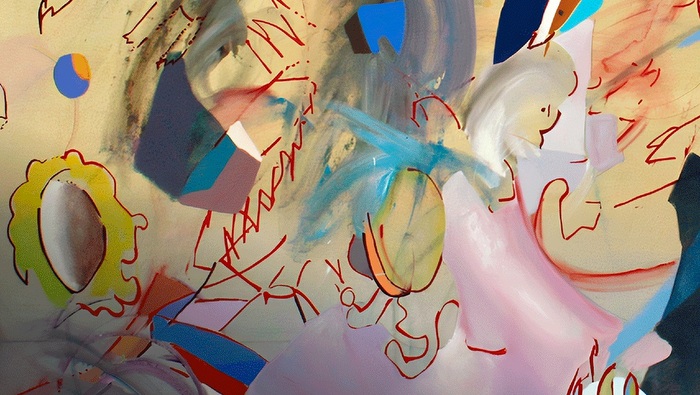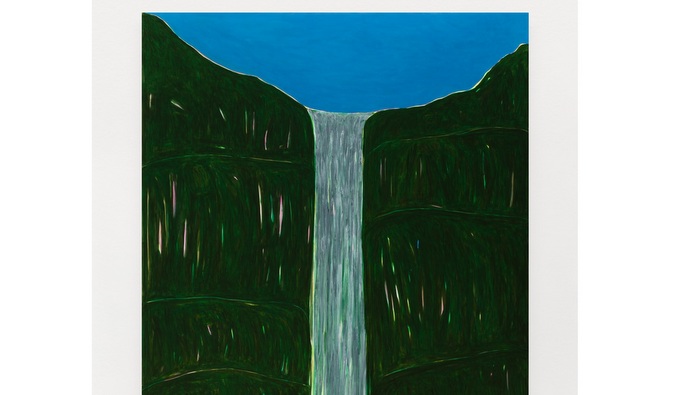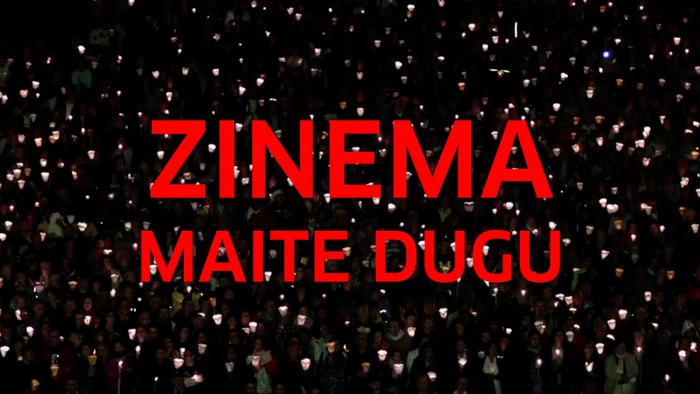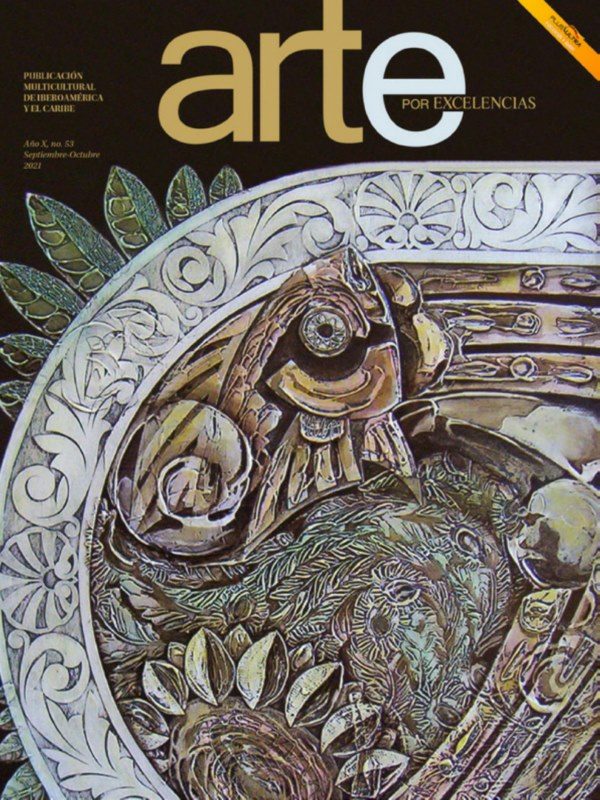Tabakalera presents the new 2025 film season, which will begin on 10 January, with the proposal drawn up by the organisations that programme on the Tabakalera shared screen: Donostia Kultura, San Sebastian International Film Festival, Basque Film Archive, Elías Querejeta Zine Eskola and Tabakalera.
Next year, Tabakalera will be celebrating its tenth anniversary and the cinema programme will reflect this milestone, highlighting the journey and work accomplished over the years.
'Tabakalera Generation'
Throughout the year, the Tabakalera cinema screen will be showing the films of the generation of filmmakers who have embarked on and established their careers thanks to the various residency programmes and film support programmes promoted by the entities that make up the Pantalla Compartida (Shared Screen) programme and which have been providing a support system for film creation such as Ikusmira Berriak or Noka.
The Ten Years of Ikusmira Berriak cycle, part of Zinemaldia + Plus, is organised this year in collaboration between the San Sebastian International Film Festival and Tabakalera, coinciding with the tenth anniversary of the International Centre for Contemporary Culture. The new cycle proposes an exploration and celebration, in retrospect, of the ten years of the Ikusmira Berriak film residency, jointly organised by the two institutions together with Elías Querejeta Zine Eskola, through 21 films developed under the programme. They have been completed and have premiered at various international festivals such as the San Sebastian Festival or those at Cannes, Venice, Berlinale, Sundance, Locarno, Viennale, Márgenes, Torino and Mar del Plata, among others.
The first session, on 25 January, will feature a screening of the short film El extraño (2016) and the feature film El gran movimiento (2021), directed by Pablo Álvarez and Kiro Russo respectively, while on 1 February, Calipatria, by Leo Calice and Gerhard Treml, and Eles transportan a morte (2021), by Helena Girón and Samuel Delgado, will be screened. On 8 February, it will be the turn of Gwendolyn Green (Tamyka Smith, 2017) and All Dirt Roads Taste of Salt (Raven Jackson, 2023). On 15 February, the screening of Trote (Xacio Baño, 2018) will take place, and on 8 March Las letras de Jordi (Maider Fernández Iriarte, 2019) will be shown.
The other titles scheduled to be shown are as follows, the dates of which will be announced soon: Chupacabra (Grigory Kolomytsev, 2020), Stephanie (Leonardo van Dijl, 2020) and Creatura (Elena Martín Gimeno, 2023), Jo ta ke (Aitziber Olaskoaga, 2020), Fantasía (Aitor Merino, 2021) -Amaia Merino also participated in the project phase for this film-, El agua (Elena López Riera, 2022), Suro (Mikel Gurrea, 2022), Pornomelancolía (Manuel Abramovich, 2022), Antier noche (Alberto Martín Menacho, 2023), O Corno (Jaione Camborda, 2023), Dormir de olhos abertos (Nele Wohlatz, 2024), Ulysses (Hikaru Uwagawa, 2024) and Monólogo colectivo (Jessica Sarah Rinland, 2024). Although the films Muga deitzen da pausoa (2019) by Maider Oleaga and 918 gau (2022) by Arantza Santesteban were also part of Ikusmira Berriak, they will not be screened during the retrospective because they have recently been scheduled to be part of the Basque Film Archive's Basque Women Filmmakers cycle. However, both directors will participate in the celebration by presenting some of the films in the cycle.
The anniversary will be complemented by a book, due to be published in the spring, which will bring together voices, images and reflections on Ikusmira Berriak. It will not only feature interviews with ten filmmakers who have taken part in the programme, but also contributions from some of those who have participated in the tutorials and representatives of the institutions behind the project. In short, it is a report that will tell the story of the ten years of the residency, featuring the 53 filmmakers who have been part of its history.
In September, Zinemaldia + Plus will also offer the traditional screenings linked to the filmography of the upcoming edition of the Donostia Awards.
During the weekend of 13-15 June, the Generation Tabakalera festival will be held, which will screen projects developed at the EQZE and films premiered at various international festivals and which have been developed in programmes to promote emerging film talent such as Noka, an initiative dedicated to the mentoring, accompaniment and support of feature films directed by Basque women filmmakers, which since its inception in 2019 has involved the participation of around twenty women filmmakers.
Feminism will be another of the central pillars of the Tabakalera film programme, with a special emphasis on cycles such as Nosferatu or the fifth edition of Basque Women Filmmakers, as well as the specific cycles that during 2025 will be dedicated to the directors Patricia Mazuy and Cinema and Literature: Chantal Akerman, featuring the participation of the writers Itxaro Borda, Karmele Jaio and Danele Sarriugarte. In addition, a feminist vision and approach will be present in other cycles and screenings through the themes or guests present in the programme.
'Classics, modern and strange. Feminist stories of cinema'
The new cycle Nosferatu, Classics, modern and strange. Feminist stories of cinema, will begin on 15 January at Tabakalera. It discusses the history of cinema from a feminine and feminist point of view and will review its 130 years of existence through films directed by female creators from all periods and backgrounds.
The cycle, organised by Donostia Kultura and the Basque Film Archive, with the collaboration of Tabakalera and the Institut Valencià de Cultura - La Filmoteca, will run from January to December 2025.
From 1896, with the work of the French pioneer Alice Guy (leading figure in the first session, in which three of her films will be screened along with one by Mabel Normand), to the present day, this exhibition aims to review, project and vindicate the work of female directors, screenwriters, producers and actresses, some of whom have been recognised and vindicated in recent years, while many others have been forgotten and erased from the history of cinema.
The retrospective begins with the showing of the work of pioneers such as Lois Weber, Frances Marion, Musidora, Dorothy Arzner, Ana Mariscal and Ida Lupino (classics). Among many others, it will continue with Agnès Varda, Chantal Akerman, Lorenza Mazzetti, Lina Wertmüller, Larisa Shepitko and Barbara Loden (modern). It will come to an end in autumn with offerings from figures such as Susan Seidelman, Naomi Kawase, Kathryn Bigelow, Jane Campion, Isabel Coixet and Mati Diop (strange).
The cycle will be accompanied by the publication of two books, one in Spanish and the other in Basque. The first one, Classics, modern and strange. Feminist stories of cinema, coordinated by Elisa McCausland and Diego Salgado, will be published in January 2025. The second one, coordinated by Iratxe Fresneda, will be published at the end of next year.
Eighth edition of Cinema and Science
The Basque Film Archive will begin the year with the eighth edition of the Cinema and Science cycle, which it organises in collaboration with the DIPC (Donostia International Physics Centre) and the San Sebastian International Film Festival. The Theory of Everything (James Marsh, 2014) will kick off the year on Friday 10 January and will be presented by the physicist and president of the DIPC, Pedro Miguel Etxenike. This programme, which uses the universal nature of cinematographic language to show the depth of scientific thought, aims to transmit cinematographic and scientific culture. The 12 films that will make up the cycle, as well as the educational sessions, will be announced at the beginning of January.
Between April and June, the fifth and last edition of Basque Women Filmmakers will take place, which will highlight the work of Basque female feature film directors born in the 80s and 90s. This cycle, usually scheduled for the autumn, will be moved to the months of April, May and June. In July, it will be the turn of Jazzinema, the joyful fusion of cinema and jazz. And between September (during the San Sebastian Festival) and December 2025, in up to five capitals, the Basque Film Archive and the San Sebastian Festival will screen Klasikoak, a programme with three main themes that will showcase restored and memorable films from the history of the seventh art; a classic film festival extended across time and space.
Patricia Mazuy, Chantal Akerman, Roberto Minervini
On 23 January, with the screening of the film Peaux de vaches, Tabakalera will launch the retrospective dedicated to the filmmaker Patricia Mazuy, a director shaped by the films of Leone and Peckinpah and a protégé of the legendary Agnès Varda. Her filmography includes six titles spanning over three decades, consistently marked by themes such as violence, humour, rural life and a mix of genres.
From January, the cycle that proposes a cross between cinema and literature will return, and in 2025 it will focus on Chantal Akerman. The first session will take place on 16 January, with the screening of a landmark film Jeanne Dielman, 23, quai du Commerce, 1080 Brussels, featuring a presentation by the writer Itxaro Borda.
Roberto Minervini is an Italian director, producer and photographer based in the USA. He became internationally known with Stop the Pounding Heart (2014). The Other Side (2016) premiered in the Un Certain Regard section at Cannes. Renowned for an intimate and political work that portrays rural American society, he moves between fiction and documentary. His portraits of marginalised people have made him a controversial but indispensable filmmaker on the current film scene. Minervini will visit Tabakalera at the end of May.
In addition, Tabakalera will continue fostering connections between filmmakers and audiences, as well as encouraging the interplay of different creative disciplines in its programming. Projects such as Spoken Cinema, which proposes a meeting space for directors to talk in the cinema about the creation process of their films, the Kameleoiak Gara! sessions for family audiences, the Contemporary Cinema Cycle and Cinema and Music will continue during 2025.
In addition, Tabakalera will continue to focus on programming aimed especially at attracting new audiences to the cinema of the International Centre for Contemporary Culture. Specific initiatives, such as Youngsters at the Cinema, the group of students from UPV/EHU responsible for curating the programming, will continue organising monthly screenings at Tabakalera's cinema. On 30 January they will be screening La Haine (1995) by Mathieu Kassovitz.
2025 cinema pass and ticket sales
The Tabakalera cinema pass is available again next year, and for €120 will offer users entry to 40 films from among all those programmed by the partner institutions of the shared screen over the course of 2024: Donostia Kultura, Basque Film Archive, Elías Querejeta Zine-Eskola, San Sebastian International Film Festival and Tabakalera, with the exception of films programmed during the San Sebastian International Film Festival 2025.
Once again this year, purchase of the pass includes one of the two publications from the Nosferatu Collection: AEBetako western post-klasikoa eta garaikidea or the aforementioned Classics, modern and strange. Feminist stories of cinema.
The pass can be purchased from 20 December 2024 at 12:00 until 31 January 2025 at 12:00, both on the Tabakalera website and at the centre's information point. The sale of ordinary tickets for the January screenings will also start on the same date and time and at the same venues.
The pass can be used from 1 January 2025 to 31 December 2025 (inclusive), and can be managed via the Tabakalera website and at the centre's information desk, being able to undertake the following actions: pass purchase, send the pass as a gift to someone else, buy tickets for films with the pass's discount and check the available balance.
All the information related to the 2025 cinema pass and the screenings scheduled for January can be found on the Tabakalera website.
Source: San Sebastian Film Festival
Related Publications

La Cometa Gallery. Upcoming Openings: Miami & Madrid
May 08, 2025
Galería YUSTO / GINER: Neo-Nueva York
May 07, 2025












